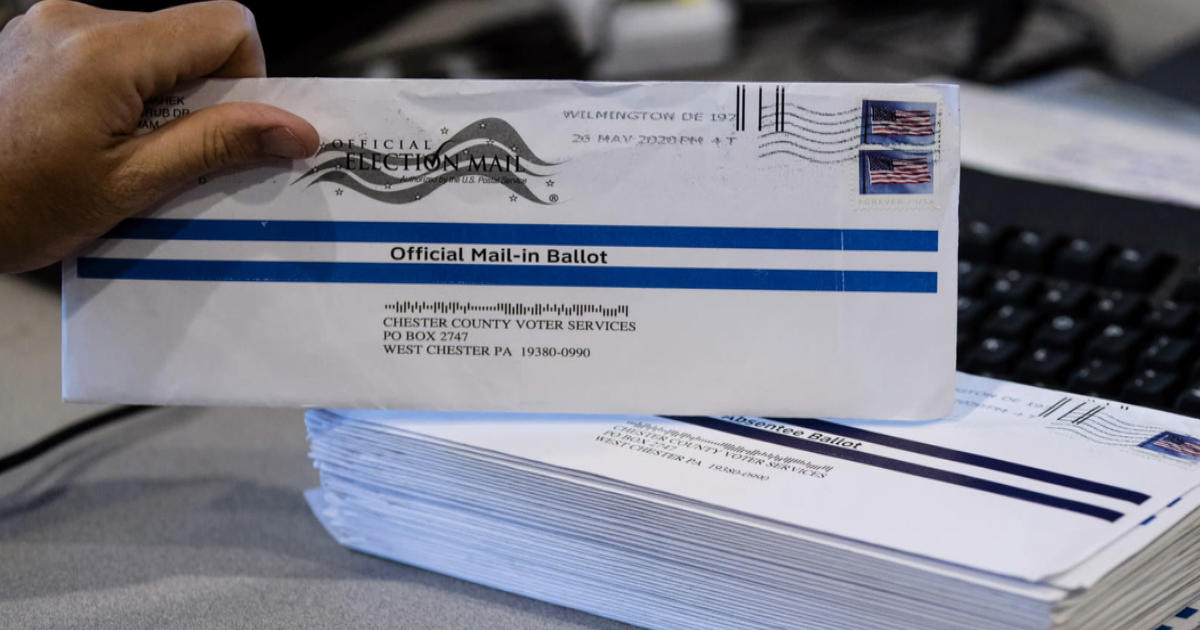The Pennsylvania Supreme Court issued a major ruling last week that settled many questions about how the battleground state will conduct this year’s presidential election. But one key question remains unanswered: whether election officials can start processing mail-in ballots — without counting them — before election day, a process that is often referred to as “pre-canvassing.”
Pennsylvania prepares for unprecedented surge in mail-in voting
The debate over poll watchers in the 2020 election
After the state held its presidential primary in June, several county officials said they were overwhelmed by the unprecedented volume of mail-in ballots, causing delays in the results for some local races in multiple counties.
In Philadelphia, City Commissioner Omar Sabir said the June primary was challenging because election officials were essentially running two elections.
Omar Sabir, one of three city commissioners in Philadelphia
CBS News
“We ran a dual operation,” Sabir said. “We had mail coming in and then we had the in-person.”
Al Schmidt, Sabir’s fellow city commissioner in Philadelphia, said preparing mail-in ballots and counting them is a laborious process.
“We have technology that helps sort certain things. But at the end of the day, these are elections officials, Board of Elections employees who are doing all that work, and it’s manual. And right now, we’re not allowed to begin doing it until Election Day, Schmidt said. “We can’t open the outer envelope, we can’t open the inner secrecy envelope, and we can’t scan any ballots before Election Day. And that is hundreds of thousands of pieces of paper requiring hundreds of people to manually assemble a lot of this.”
Al Schmidt, one of three city commissioners in Philadelphia
CBS News
The Pennsylvania Department of State issued a report highlighting some of the main challenges counties faced with the state’s new mail-in voting system during the primary. The report recommended a number of changes the state General Assembly could legislate that would expedite the vote count in November.
“The single most important change to accomplish this is a legislative change: We hope to work with the General Assembly to allow counties to begin pre-canvassing ballots in the weeks before Election Day,” the report said. “The counties overwhelmingly support this reform, and we hope the legislature shares this priority and will pass this amendment.”
After the primary, lawmakers began discussing plans to improve Pennsylvania’s election law. But shortly after President Donald Trump’s campaign sued the state in federal court in late June, alleging the new mail-in system is vulnerable to fraud, Republican and Democratic lawmakers stopped seeing eye to eye.
Pennsylvania Republicans control the state legislature, but the governor, Tom Wolf, is a Democrat. Republican Senate Majority Leader Jake Corman says he shares the concerns voiced by election officials throughout the state and wants to avoid a scenario similar to the one in 2000, when the results of the presidential election were held up because of the recount in Florida.
“That’s why our legislation would allow three days of pre-canvassing. I know the counties had asked for more. We’re certainly still open to a negotiation with the governor on what the proper number is,” says Corman. “But still, we could still negotiate how that might work. But clearly– I do have a concern, as we saw in the primary, that– some of the results of contested races took weeks. And we clearly don’t wanna be Florida of 2000.”
Pennsylvania Senate Majority Leader Jake Corman
CBS News
Governor Tom Wolf and state democrats oppose the legislation, partly because it also seeks to limit the use of ballot drop boxes and change county-restrictions on poll watchers.
Philadelphia City Commissioner Omar Sabir is asking lawmakers to allow election officials to start processing mail-in ballots three weeks before election day.
“People want these results election night,” Sabir says. “We have to make some changes.”
